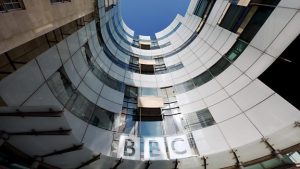
After more than 40 years of operation, DTVE is closing its doors and our website will no longer be updated daily. Thank you for all of your support.
Government plans to extend Ofcom regulation of BBC to online news

Source: BBC
The UK government wants to extend media regulator Ofcom’s remit to include oversight of BBC online services and to toughen up the way the BBC deals with complaints, citing concerns about impartiality in news coverage and responsiveness to complaints.
A Mid-Term Review – carried out at the mid-points of the BBC’s 11-year charter by the Department of Culture, Media and Sport – has recommended the changes, and urged the pubcaster to better reflect diverse views and opinions in decision-making.
The DCMS said that the changes would give audiences more certainty that complaints about content would dealt with fairly.
Ofcom oversight will be extended to parts of the corporation’s online services including the BBC News website “to enable Ofcom to hold the BBC to account in a more robust way”.
It said that the government would also “continue to place a strong emphasis on impartiality and complaints, including reviewing the effectiveness of the BBC’s new social media guidelines and whether the BBC First model – formally introduced by the Charter in 2017 – process remains the right model for complaints”.
The BBC First model refers to complaints being addressed initially bty the BBC before they can be escalated to Ofcom.
The government said that “impartiality continues to be an ongoing issue for audiences, with concerns about the broadcaster’s objectivity making up the majority of complaints about the BBC’s editorial content”.
Changes in the immediate future will include the BBC board being given more direct oversight of the pubcaster’s complaints procedure.
“The Mid-Term Review was designed to look at the BBC’s governance and regulation. We’re pleased the Government’s findings reflect that overall these are working well.With regard to the BBC’s impartiality, no other organisation takes its commitment to impartiality more seriously. We have well-established and detailed plans to sustain and further improve standards. We know this matters to audiences and the BBC continues to be the number one source for trusted news, with the highest scores for impartiality and accuracy,” said a BBC spokesperson.
“During discussions over the Mid-Term Review, we proposed and implemented a number of reforms, including strengthening our complaints procedures, which now form part of the conclusions. We are pleased the Government has fully taken our proposals onboard. We remain committed to continuous improvement to ensure we deliver for all licence fee payers. The BBC is operationally and editorially independent and we will continue to engage constructively with Government, and our regulator Ofcom, over the second half of this Charter and as we look ahead to a new Charter in 2028.”
The review also called for the BBC to be engage more with competitors and to be more transparent when making changes to its services. It called for Ofcom to publish an annual high-level view on the BBC’s position in the local news sector,
It did conclude that the current governance of the BBC’s commercial activities “works effectively” but said that the work of the BBC’s commercial board needs to be monitored closely.
On diversity, the review called for the BBC to consider how “diversity of thought and opinion” could be better reflected in its decision-making and called for more engagement with disabled viewers and people from lower socioeconomic backgrounds.


